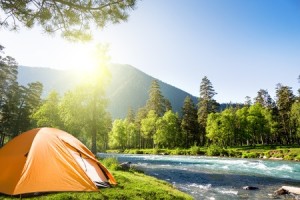Johnny B’s Pest Control and the National Pest Management Association offer tips for a pest-free excursion
Camping is certainly one of summer’s most beloved activities, yet venturing into nature can have its dangers when it involves coming into contact with harmful insects and company. To keep this pastime an enjoyable one, Johnny B’s Pest Control reminds camping enthusiasts to implement proper precautions when taking on the great outdoors.
Appreciating nature is part of the camping experience, but admiring it in a safe and responsible way is best for a more enjoyable camping trip. Coming into direct contact with certain insects and wildlife has its risks. Mosquitoes and ticks, for example, are vector pests that feed on blood and can transmit serious illnesses such as West Nile virus, Zika and Lyme disease through their bites. And, wildlife could become aggressive if they feel threatened, while animals such as raccoons and bats could be potential carriers of rabies. The best bet is to avoid contact with these animals as much as possible.”
To help keep the campsite a bug- and animal-free zone, the NPMA and Johnny B’s Pest Control recommends adventurers follow these tips:
- Ahead of camping, apply insect repellant containing an EPA-registered active ingredient such as DEET or Picaridin, and repeat applications according to the product label.
- Wear long sleeves, pants, socks and closed toe shoes to help avoid mosquito and tick bites. Do a thorough check after hiking in woods or tall grasses.
- Yellowjackets and other stinging insects are attracted to fragrances from shampoo, perfume and candles — not to mention food and drink. Avoid using scented items and pour beverages into clear plastic cups rather than drinking from cans.
- Prior to camping, check tent materials and repair any holes that can serve as points of entry. Keep tents closed at all times unless going in or out.
- Keep all food and beverages packed in secure coolers and containers. Seal utensils and dishware immediately after use.
- Dispose of beverage bottles and cans in tightly closed garbage receptacles. Keep garbage containers sealed and away from the sleeping grounds.
- Do not attempt to feed, lure or pet wild animals.
For more information and get a pest inspection, please visit www.johnnybsestcontrol.com
